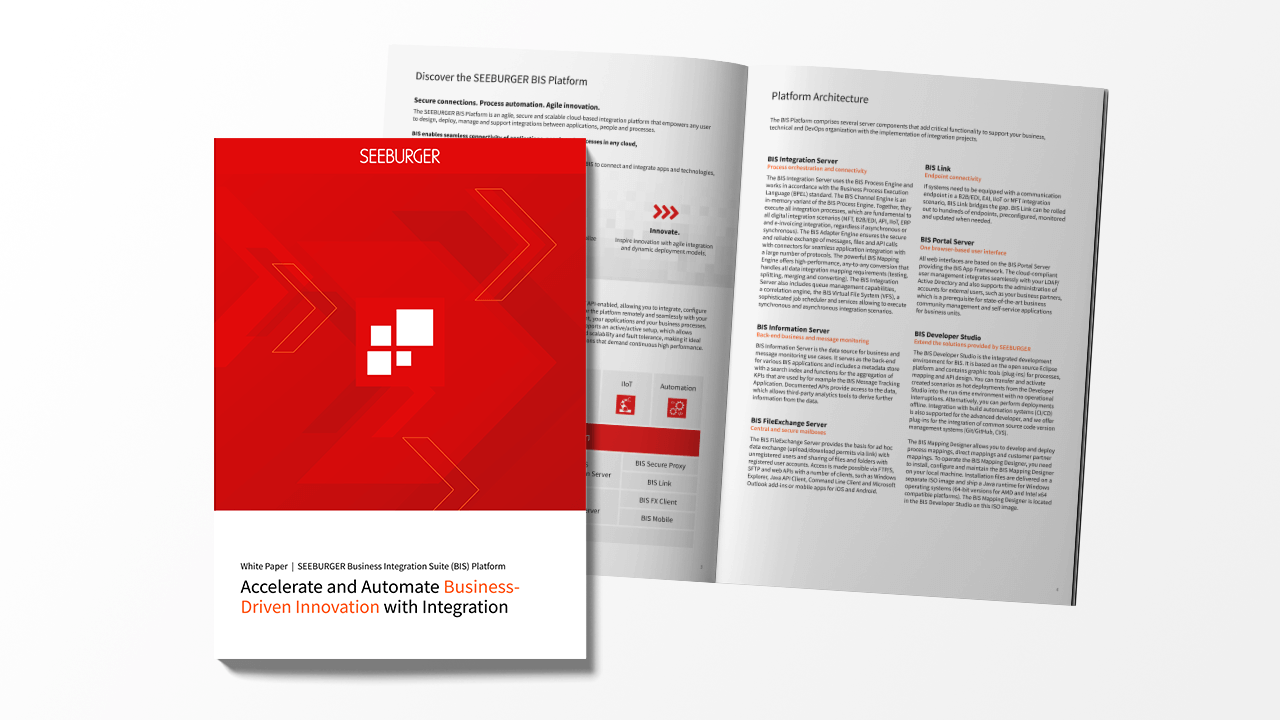
EDI Message Standards – an Overview
Introduction
EDI message standards are useful for electronically exchanging structured data between business partners. Various organizations such as UN, ANSI, DIN or VDA define the EDI message standards. The most commonly used format is the UN/EDIFACT message (United Nations rules for Electronic Data Interchange for Administration, Commerce and Transport). Related to this format, a number of variations exist (usually defined by an industry, e.g. EANCOM). These dialects are usually referred to as subsets.
Other important message formats are ANSI X12 (the American National Standards Institute Accredited Standards Committee X12). This standard is mainly used in North America, ODETTE (Standard of the European Automotive Industry) and VDA (Format of the Association of the German Automotive Industry). The TRADACOMS standard is the predecessor of EDIFACT in the UK. HIPAA (Law on Control and Safety of Medical Insurance) was specifically developed for the compliance of activities in health authorities and for legislation purposes.
| UN/EDIFACT | The most comprehensive and worldwide most common standard is coming from the United Nations (UN/ECE). |
| EDIFICE | Implementation guidelines for EDIFACT messages in the European high-tech industry. |
| ANSI X.12 | Standard mainly used in North America. |
| VDA | Standard of the German automotive industry. |
| EANCOM | Standard of the European retail industry. |
| ODETTE | Standard of the European automotive industry. |
| GALIA | Automotive standard especially in France, very similar to Odette. |
| ebXML | Open standard from OASIS and CEFACT. |
| XBRL | For the preparation of financial reports in electronic form. |
| RosettaNet | A non-profit consortium of more than 500 companies, mainly from the electronics industry. The goal is the development and implementation of open eBusiness standards and services in the industry. |
| TRADACOMS | Standard of the UK retail industry. |
| HIPAA | Standard of the North American healthcare industry. |

EDI message types according to various standards
All of the above standards have created corresponding message types for the respective business process:
| EDIFACT (Worldwide Standard) | ODETTE (European Standard) | VDA (Legacy Standards) | VDA (GLOBAL) | ANSI X.12 (North America Standard) | TRADACOMS (UK Standard) | Business Transaction |
|---|---|---|---|---|---|---|
| DELFOR | DELINS | VDA 4905 | VDA 4984 | 830 | ~ | delivery forecast |
| INVOIC | INVOIC | VDA 4906 | VDA 4938 | 810 | INVFIL | invoice message |
| REMADV | REMADV | VDA 4907 | VDA 4988 | 820 | SRMHDR | remittance advice |
| INVOIC | CREDIT | VDA 4908 | VDA 4938 | ~ | CREHDR | credit entry |
| DESADV | AVIEXP | VDA 4913 | VDA 4987 | 856 | DELHDR | despatch advise message |
| INVRPT | STOACT | VDA 4913-EDL VS35 and VS36 | VDA 4990 | 846 | SNPSTS | inventory reports |
| RECADV | STOACT | VDA 4913-EDL VS30 | VDA 4989 | 846 | ~ | receipt advise |
| SLSRPT | STOACT | ~ | ~ | 852 | ~ | outgoing sales report |
| ORDERS | ORDERR | ~ | ~ | 850 | ORDHDR | purchase order message |
| ORDCHG | ~ | ~ | ~ | 860 | ~ | purchase order change request |
| DELJIT | DELINS (CALL-OFF) | VDA 4915 | VDA 4985 | 862 | ~ | JIT delivery |
| DELJIT | SYNCRO | VDA 4916 | VDA 4986 | 866 | ~ | JIT |
| DELJIT | CALDEL | VDA 4916 | VDA 4986 | 866 | ~ | JIT direct delivery call |
| IFTMIN | TRINAD | VDA 4920 | ~ | 858 | ~ | instructions of transport |
| CONTRL | ~ | ~ | VDA 4937 | 997 | ~ | functional acknowledgement |
EDI message standards: industry, regional or global importance
Why have different message standards established themselves at all? This is primarily due to their ability to cover business processes in specific industries or regions particularly well. The following overview illustrates this:

With today’s rapidly changing requirements flexibility is a key business requirement. Thus the B2B integration platform is use needs to be able to work with all these EDI Message Standards, Types and output formats seamlessly.
More About EDI Standards and SEEBURGER EDI/EDIFACT Solutions
Technical Whitepaper BIS Platform









